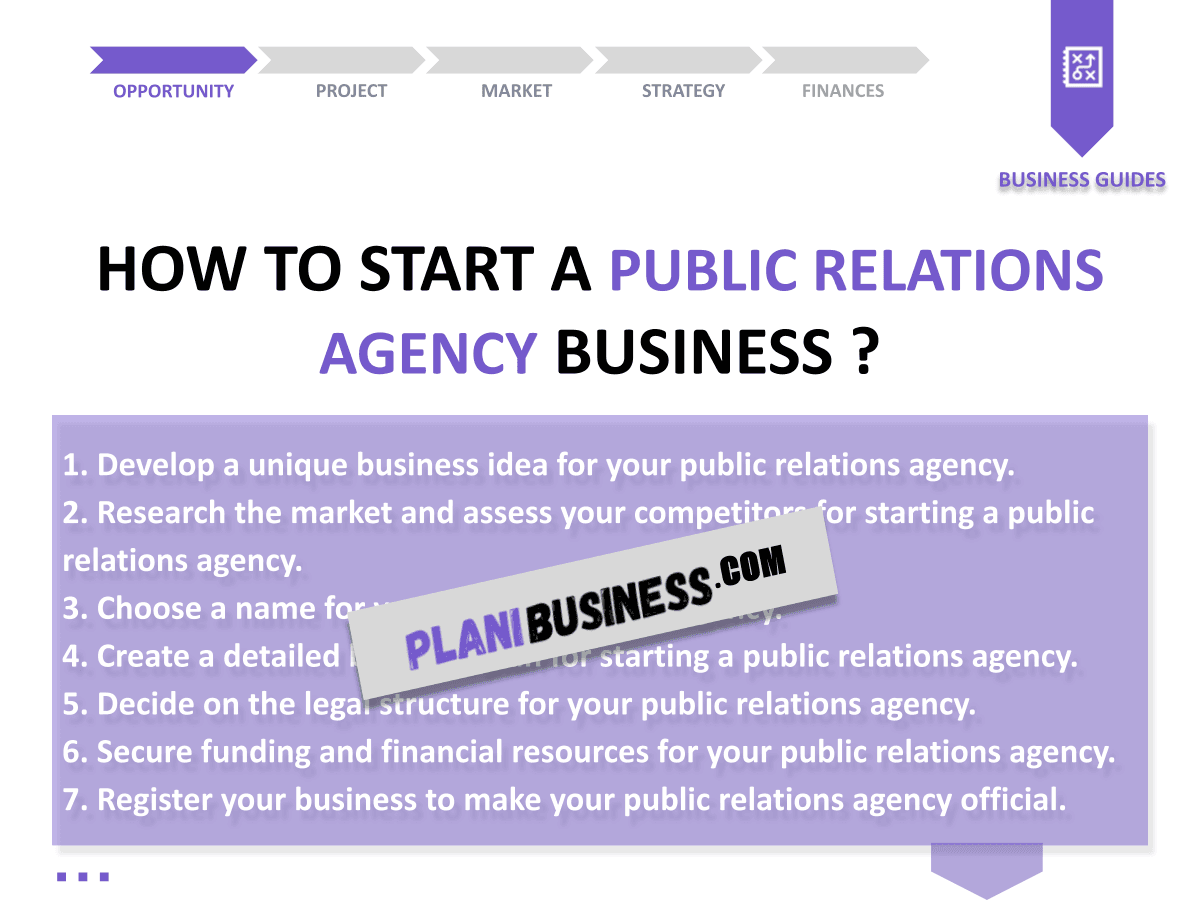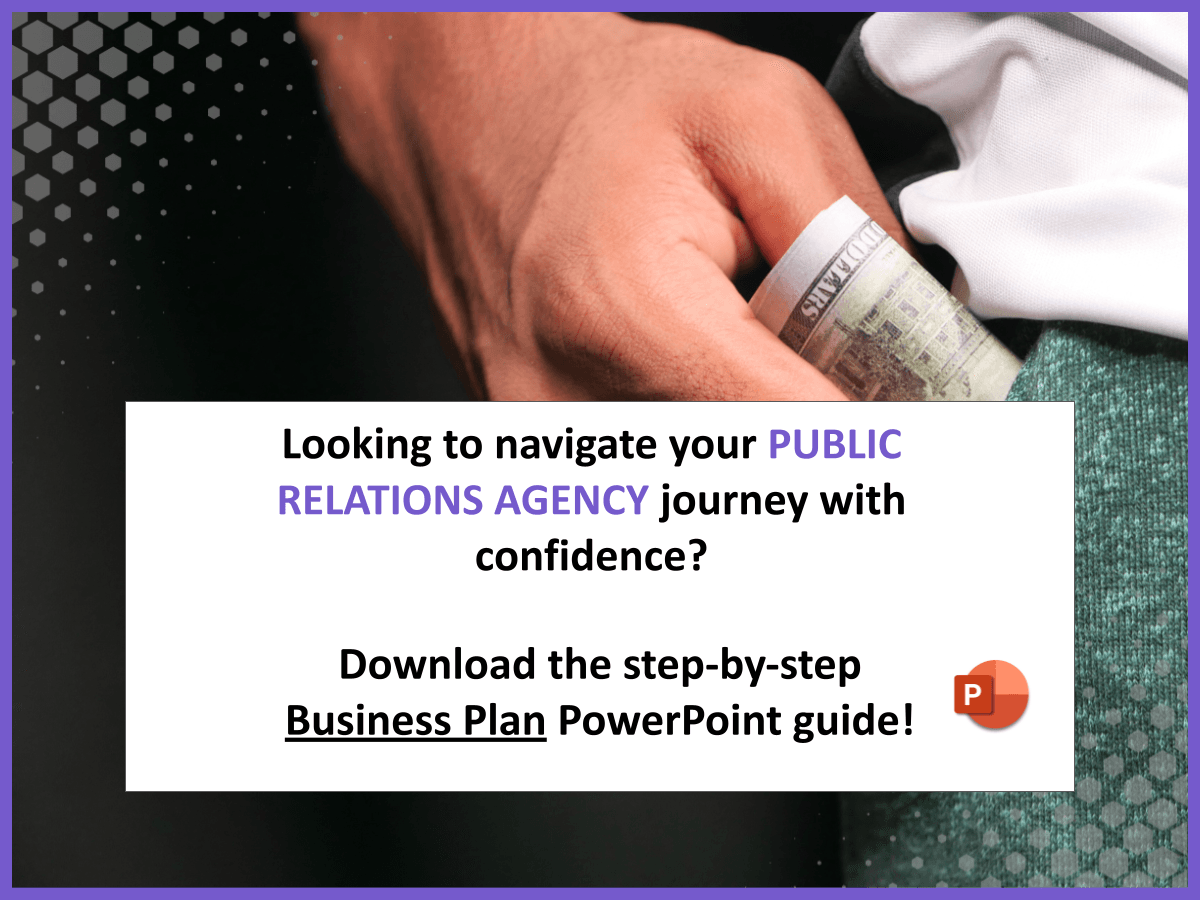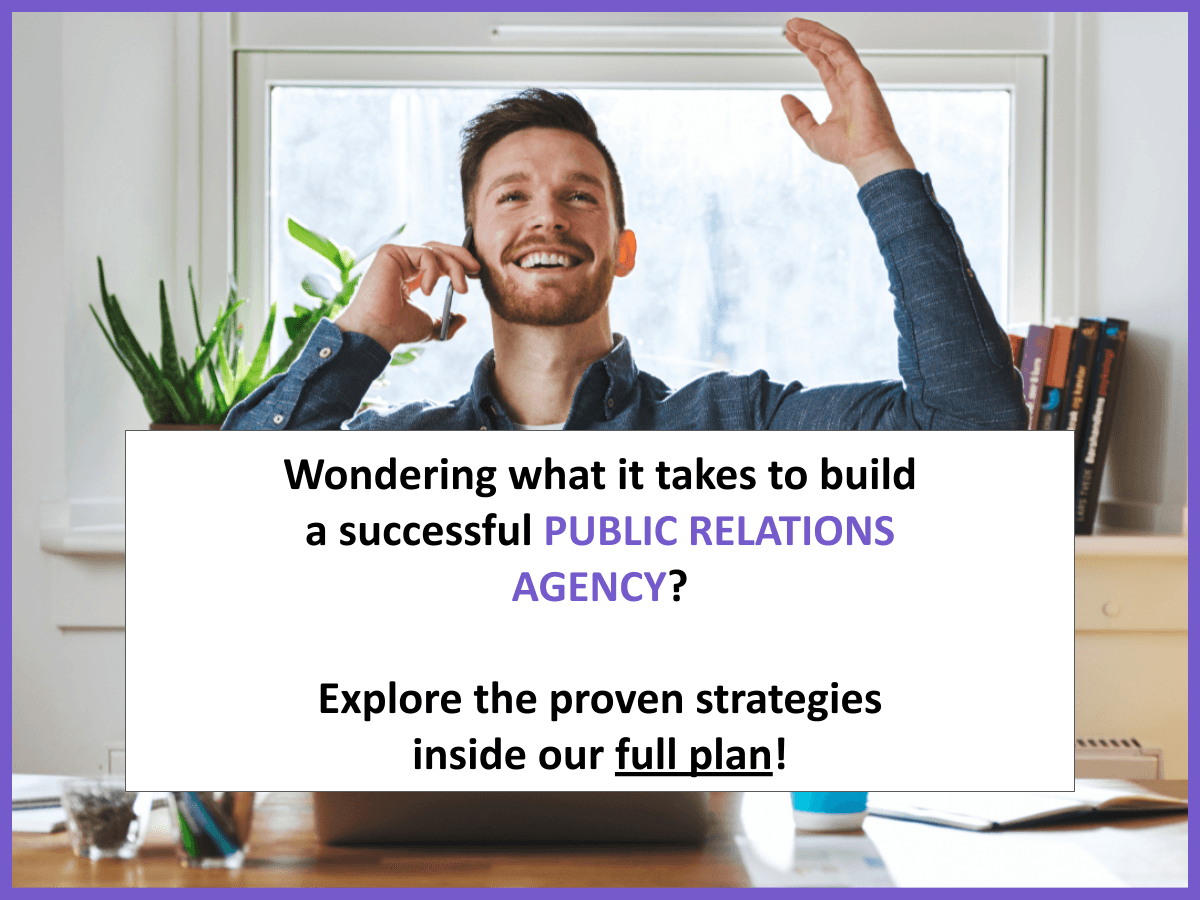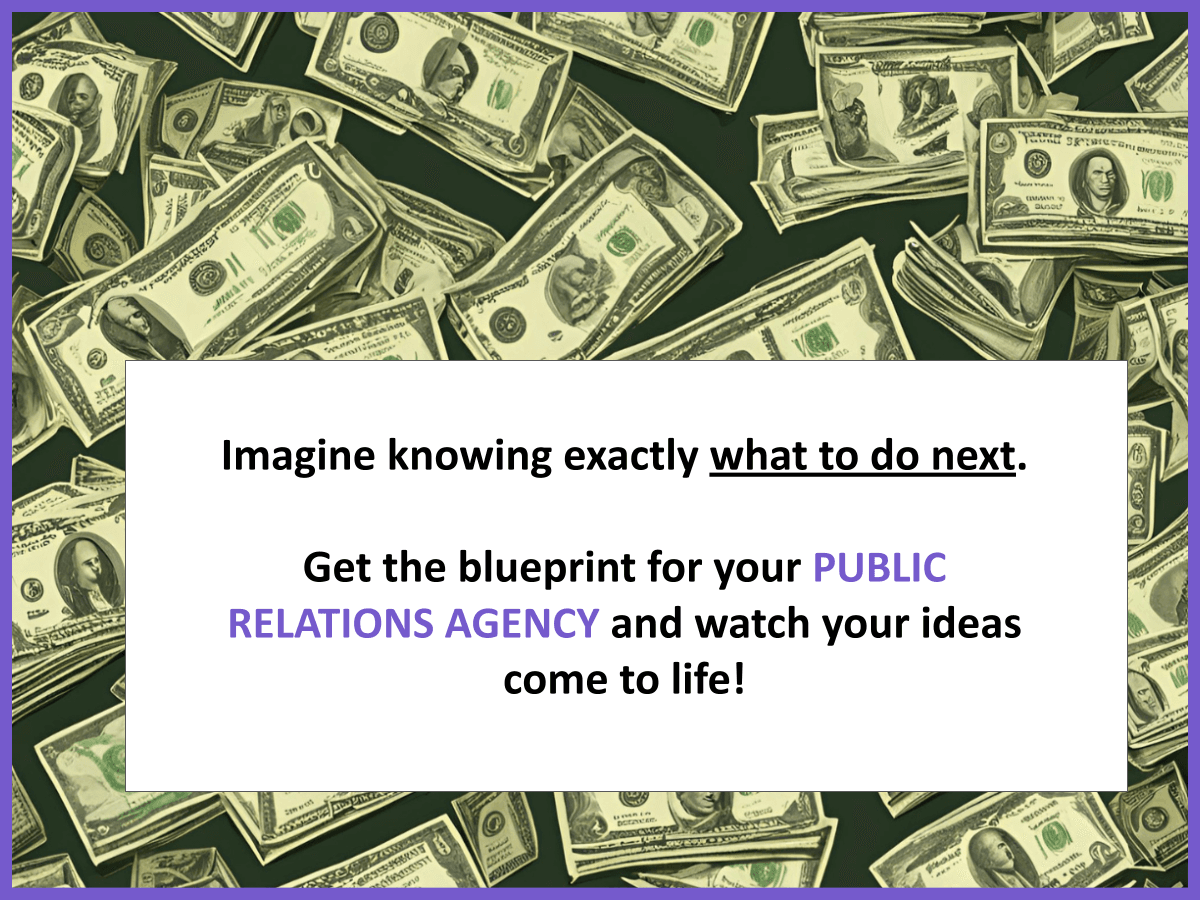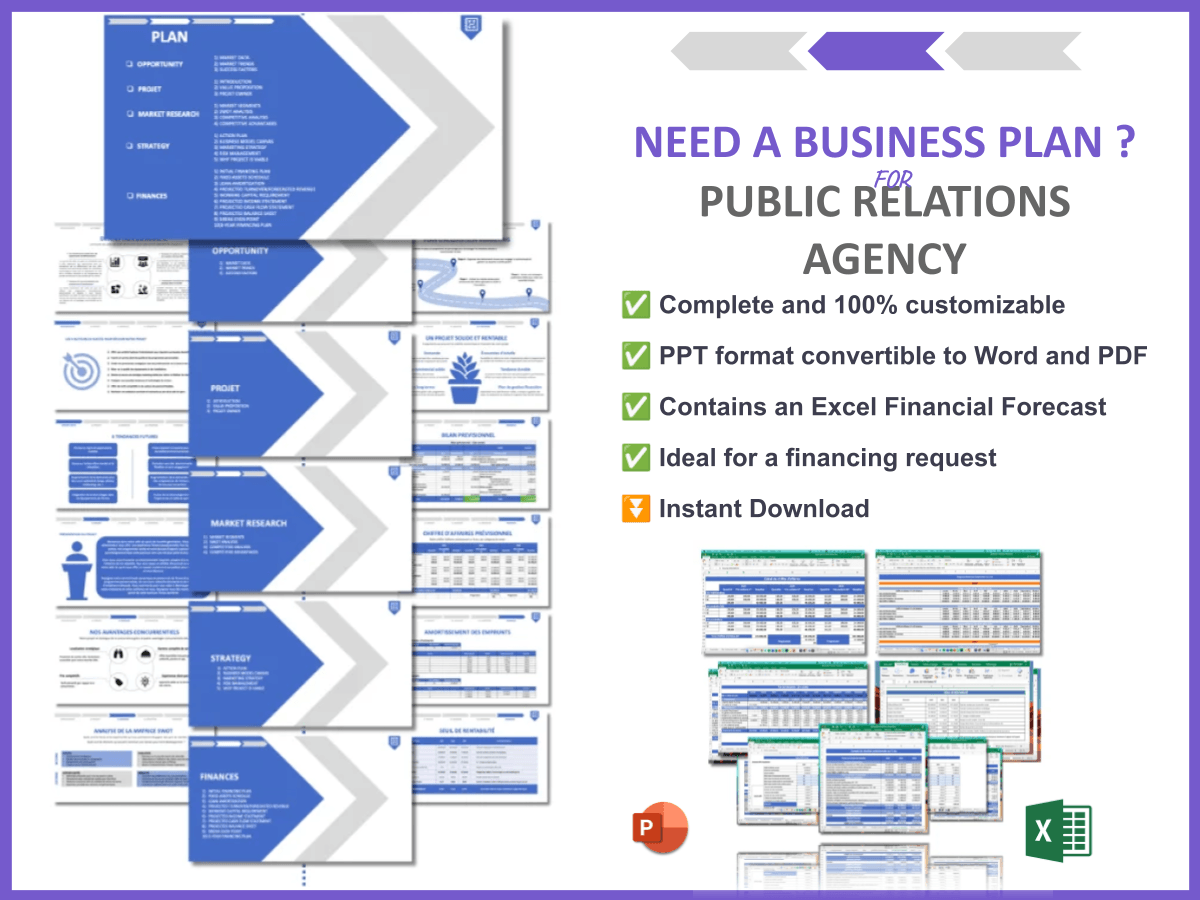Are you thinking about starting a public relations agency? You’re not alone! The PR industry is booming, with businesses increasingly recognizing the value of effective communication. Essentially, starting a public relations agency involves helping organizations manage their public image, communicate effectively, and build relationships with their target audiences.
This article will guide you through the essential steps to launch your own PR agency. Here’s what we’ll cover:
- Understanding the public relations landscape
- Creating a solid business plan
- Choosing the right legal structure
- Building a brand identity
- Marketing your agency effectively
- Assembling a talented team
1. What does it mean to How to Start a Public Relations Agency?
Starting a public relations agency can be an exciting venture. You’ll be stepping into a world where storytelling and strategic communication are paramount. Here are a few key points to consider:
- PR professionals help businesses navigate public perception.
- They craft messages that resonate with audiences and build brand loyalty.
- The role of a PR agency is to manage crises, create campaigns, and foster relationships.
As you begin this journey, keep in mind that understanding your clients’ needs is crucial. Your agency will serve as a bridge between them and the public, so honing your communication skills will be essential.
2. Why is starting a public relations agency a great idea?
Starting a PR agency can be incredibly rewarding for several reasons:
- Growing Demand: Businesses are increasingly aware of the importance of maintaining a positive public image. In fact, the public relations industry is expected to grow by over 10% in the coming years.
- Creative Opportunities: If you have a knack for storytelling and creativity, this field offers a platform to express those talents. You’ll be able to devise innovative campaigns that capture attention.
- Financial Potential: Many successful PR agencies earn substantial revenue. By providing valuable services, you can create a profitable business that supports your lifestyle and aspirations.
Furthermore, entering the public relations landscape now means you can capitalize on current trends and emerging technologies. With social media and digital marketing becoming increasingly important, there’s never been a better time to jump in!
3. Develop a unique business idea for your public relations agency.
Before diving into the world of public relations, it’s crucial to refine your business idea. A strong foundation will set the stage for your agency’s success. Here are some steps to help you develop a unique business idea:
- Identify Your Niche: What specific area of PR interests you the most? This could range from corporate communications to social media management or even crisis management. Focusing on a niche can help you stand out in a crowded market.
- Analyze Market Needs: Research your target audience and their needs. What challenges do they face that your agency can address? Conduct surveys or interviews to gather insights.
- Evaluate Competitors: Take a look at what other agencies are offering. What services are they providing, and how can you differentiate your agency? A competitive analysis can reveal gaps in the market.
For example, if you discover that many businesses struggle with digital communication, you could specialize in that area. Your unique value proposition could be providing tailored digital PR strategies that drive engagement.
4. Research the market and assess your competitors for starting a public relations agency.
Understanding your market and competitors is vital for positioning your agency effectively. A thorough market analysis will help you identify opportunities and threats within the industry. Here’s how to get started:
- Conduct Market Research: Use surveys, focus groups, and online research to gather data about your target audience. Look for trends and preferences that could influence your services.
- Perform a SWOT Analysis: Assess your competitors using a SWOT analysis (Strengths, Weaknesses, Opportunities, Threats). This will give you a clearer picture of where your agency can fit in.
| Competitor | Strengths | Weaknesses |
|---|---|---|
| Competitor A | Established client base, strong reputation | High service fees |
| Competitor B | Innovative digital strategies | Lack of experience in traditional PR |
By analyzing competitors, you can identify their strengths and weaknesses, allowing you to position your agency strategically. This information can guide your service offerings and marketing strategies, ensuring that you fill a niche that others may have overlooked.
5. Choose a name for your public relations agency.
Your agency’s name is crucial—it’s the first impression you make on potential clients. A well-thought-out name can convey your agency’s mission, values, and services. Here are some tips for selecting the perfect name:
- Keep it Simple: Choose a name that is easy to remember and pronounce. Avoid overly complex words that may confuse your audience.
- Reflect Your Brand: Your name should resonate with your target audience and reflect the essence of your public relations agency. Think about what you want your agency to represent.
- Check Domain Availability: In today’s digital age, having a matching website domain is essential. Make sure the name you choose has an available domain for online presence.
Once you have a shortlist of names, gather feedback from friends, family, or potential clients. Their insights can help you choose a name that truly resonates with your audience.
6. Create a detailed business plan for starting a public relations agency.
Writing a business plan is one of the most critical steps in launching your public relations agency. A solid business plan will guide your agency’s direction and help secure funding if needed. Here’s what to include:
- Executive Summary: Provide an overview of your agency, including your mission statement and the services you offer.
- Market Analysis: Detail your research findings about the industry, target audience, and competitors.
- Marketing Strategies: Outline how you plan to attract clients, including branding, social media, and networking strategies.
- Financial Projections: Include projected income, expenses, and profit margins for at least the first three years.
I recommend checking out this business plan template for Public Relations Agency. It’s super detailed and can save you a ton of time! Having a structured template can make the process less overwhelming and ensure you cover all essential aspects.
Remember, your business plan is a living document. As your agency grows and evolves, so should your plan. Regularly revisiting and updating it will help you stay on track and adapt to changes in the industry.
7. Decide on the legal structure for your public relations agency.
Choosing the right legal structure for your public relations agency is a vital step that will affect your taxes, liability, and operational flexibility. Here are some common legal structures to consider:
- Sole Proprietorship: This is the simplest form of business ownership. You are the sole owner, and it allows for easy tax filing. However, it does not provide personal liability protection.
- Partnership: If you plan to start your agency with one or more partners, a partnership may be suitable. This structure allows you to share responsibilities and profits, but partners can also share liabilities.
- Limited Liability Company (LLC): An LLC combines the benefits of a corporation and a partnership. It provides personal liability protection while allowing for flexible tax treatment.
Consider consulting with a legal expert or business advisor to determine which structure best suits your needs. Your choice will impact everything from your personal liability to your tax obligations, so it’s essential to choose wisely.
8. Secure funding and financial resources for your public relations agency.
Funding your public relations agency is a critical step that can determine your initial success. Here are some avenues to consider for securing financial resources:
- Personal Savings: Using your savings is a common way to fund a startup. It gives you complete control without owing money to anyone.
- Loans: You can approach banks or credit unions for a small business loan. Be prepared with your business plan to demonstrate your agency’s potential.
- Investors: If you’re open to it, consider bringing on investors who can provide capital in exchange for a share of your agency. This can be a great way to secure funding while also gaining valuable expertise.
Regardless of the funding source you choose, it’s essential to create a detailed budget that outlines your startup costs and ongoing expenses. This will help you manage your finances effectively and ensure that your public relations agency is set up for success.
Lastly, remember to keep track of all financial transactions and maintain clear records. This will not only help you manage your finances but also prepare you for tax season and any potential audits.
9. Register your business to make your public relations agency official.
Once you’ve settled on a name and legal structure, it’s time to register your public relations agency. This step is essential for legitimizing your business and ensuring compliance with local regulations. Here’s how to go about it:
- File Necessary Paperwork: Depending on your chosen legal structure, you may need to file specific documents with your state or local government. This could include Articles of Incorporation for an LLC or a partnership agreement.
- Obtain Licenses and Permits: Research what licenses and permits you need to operate legally in your area. This might include a business license or industry-specific permits.
- Set Up a Business Bank Account: Open a dedicated bank account for your agency. This will help you manage finances separately from personal funds and simplify accounting.
It’s also a good idea to keep copies of all registration documents in a secure location. This ensures that you can easily access them when needed, whether for banking or legal purposes.
10. Obtain necessary tax identification numbers, licenses, and permits for your public relations agency.
Once your business is registered, obtaining the necessary tax identification numbers and licenses is crucial for operating legally. Here’s what you need to consider:
- Employer Identification Number (EIN): If you plan to hire employees or operate as a corporation, you’ll need to apply for an EIN from the IRS. This number is used for tax purposes.
- State Tax ID Number: Some states require a separate tax identification number for state tax purposes. Check with your state’s tax agency to see if you need one.
- Business Licenses: Depending on your location and the services you provide, you may need specific business licenses. Research local regulations to ensure compliance.
In addition to these requirements, consider looking into professional certifications or memberships in industry organizations. These can enhance your agency’s credibility and provide networking opportunities.
Keep a checklist of all required documents and deadlines to ensure you don’t miss anything. This proactive approach will help you navigate the legal landscape smoothly as you launch your public relations agency.
11. Establish your brand identity for your public relations agency.
Creating a strong brand identity is essential for your public relations agency. Your brand is how clients perceive you, and it should reflect your values and the services you offer. Here are some key components to consider:
- Logo Design: Invest in a professional logo that captures the essence of your agency. This will be a visual representation of your brand and should be memorable.
- Color Palette: Choose a color scheme that resonates with your target audience and reflects your agency’s personality. Consistent use of colors across all platforms helps create brand recognition.
- Messaging: Develop a clear and concise brand message that communicates what your agency stands for. This should be reflected in your website, marketing materials, and social media.
Consider creating a brand style guide that outlines your logo usage, color palette, typography, and messaging. This will ensure consistency across all your marketing materials and help build a recognizable brand.
12. Develop a professional website for your public relations agency.
Your website serves as the digital storefront for your public relations agency. It should be visually appealing, easy to navigate, and informative. Here are some essential elements to include:
- Portfolio: Showcase your previous work and case studies to demonstrate your expertise and success. Include testimonials from satisfied clients to build credibility.
- Service Offerings: Clearly outline the services you provide, such as media relations, crisis management, or social media strategy. Make it easy for potential clients to understand what you can offer them.
- Contact Information: Ensure your contact details are easily accessible. Consider including a contact form to make it simple for potential clients to reach out.
| Website Element | Description | Importance |
|---|---|---|
| Portfolio | Showcases your past work and successes | Builds credibility and attracts clients |
| Service Offerings | Details the services you provide | Helps clients understand your capabilities |
| Contact Information | Allows potential clients to reach out easily | Facilitates communication and inquiries |
Additionally, make sure your website is optimized for search engines (SEO) to increase visibility. Use relevant keywords throughout your content to help potential clients find you online.
13. Market and advertise your public relations agency.
Once your public relations agency is up and running, it’s time to focus on marketing and advertising to attract clients. Here are some effective strategies to consider:
- Social Media Marketing: Leverage platforms like LinkedIn, Twitter, and Facebook to share your insights, successes, and agency updates. Engaging with your audience can enhance your visibility and build relationships.
- Networking Events: Attend industry conferences, workshops, and networking events to connect with potential clients and other professionals in the field. Building relationships in person can lead to valuable opportunities.
- Email Campaigns: Create targeted email campaigns to reach potential clients. Share valuable content, updates about your agency, and special offers to keep your audience engaged.
Finally, consider investing in online advertising, such as Google Ads or social media ads, to increase your reach. This can be a great way to attract clients actively seeking PR services.
By employing these marketing strategies, you can effectively promote your public relations agency and establish a strong client base. Remember, consistency and persistence are key in the competitive world of public relations!
Conclusion
Starting a public relations agency can be an incredibly rewarding venture, offering both creative opportunities and financial potential. By following the steps outlined in this article, from developing a unique business idea to marketing your agency effectively, you can set yourself up for success in the competitive world of PR.
As you continue your journey, consider deepening your understanding of essential strategies. For example, learning how to create a SWOT analysis for your Public Relations Agency can provide valuable insights into your strengths and weaknesses, helping you navigate the market more effectively. Additionally, you might find it beneficial to explore how to build a Public Relations Agency Marketing Plan with examples that can guide your promotional efforts.
Embrace the challenges and opportunities that come with launching your agency, and remember that persistence and adaptability are key. Best of luck on your exciting journey in the world of public relations!
FAQ
- What are the essential services offered by a public relations agency?
A public relations agency typically offers services such as media relations, crisis management, event planning, and social media management to help clients communicate effectively with their audiences.
- How can I find clients for my public relations agency?
Networking, attending industry events, and utilizing social media platforms are effective ways to connect with potential clients. Additionally, building a strong online presence can attract inquiries.
- What should be included in a public relations agency business plan?
A comprehensive business plan for a public relations agency should include an executive summary, market analysis, marketing strategies, and financial projections to guide your operations.
- How do I measure the success of my public relations agency?
Success can be measured through various metrics, such as client satisfaction, media coverage, and the effectiveness of campaigns. Regularly reviewing these metrics can help you adjust strategies as needed.
- What are the legal requirements for starting a public relations agency?
Legal requirements may vary by location but generally include registering your business, obtaining necessary licenses, and applying for tax identification numbers.
- Do I need a degree to start a public relations agency?
While a degree in communications, marketing, or a related field can be beneficial, practical experience and a strong portfolio can also demonstrate your capabilities in the public relations industry.
- How can I build my agency’s brand identity?
Establishing a strong brand identity involves creating a memorable logo, developing a consistent color palette, and crafting messaging that reflects your agency’s values and services.
- What is the importance of networking for a public relations agency?
Networking is crucial for building relationships with potential clients, industry influencers, and media contacts. These connections can lead to referrals and new business opportunities.
- How can I promote my public relations agency online?
Utilizing social media, creating valuable content, and optimizing your website for search engines are effective strategies for promoting your public relations agency online.
- What are the common challenges faced by public relations agencies?
Common challenges include managing client expectations, staying updated on industry trends, and effectively measuring campaign success. Adapting to these challenges is essential for long-term success.

